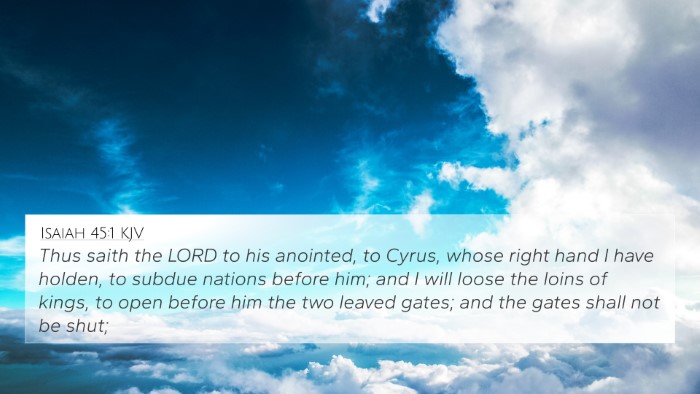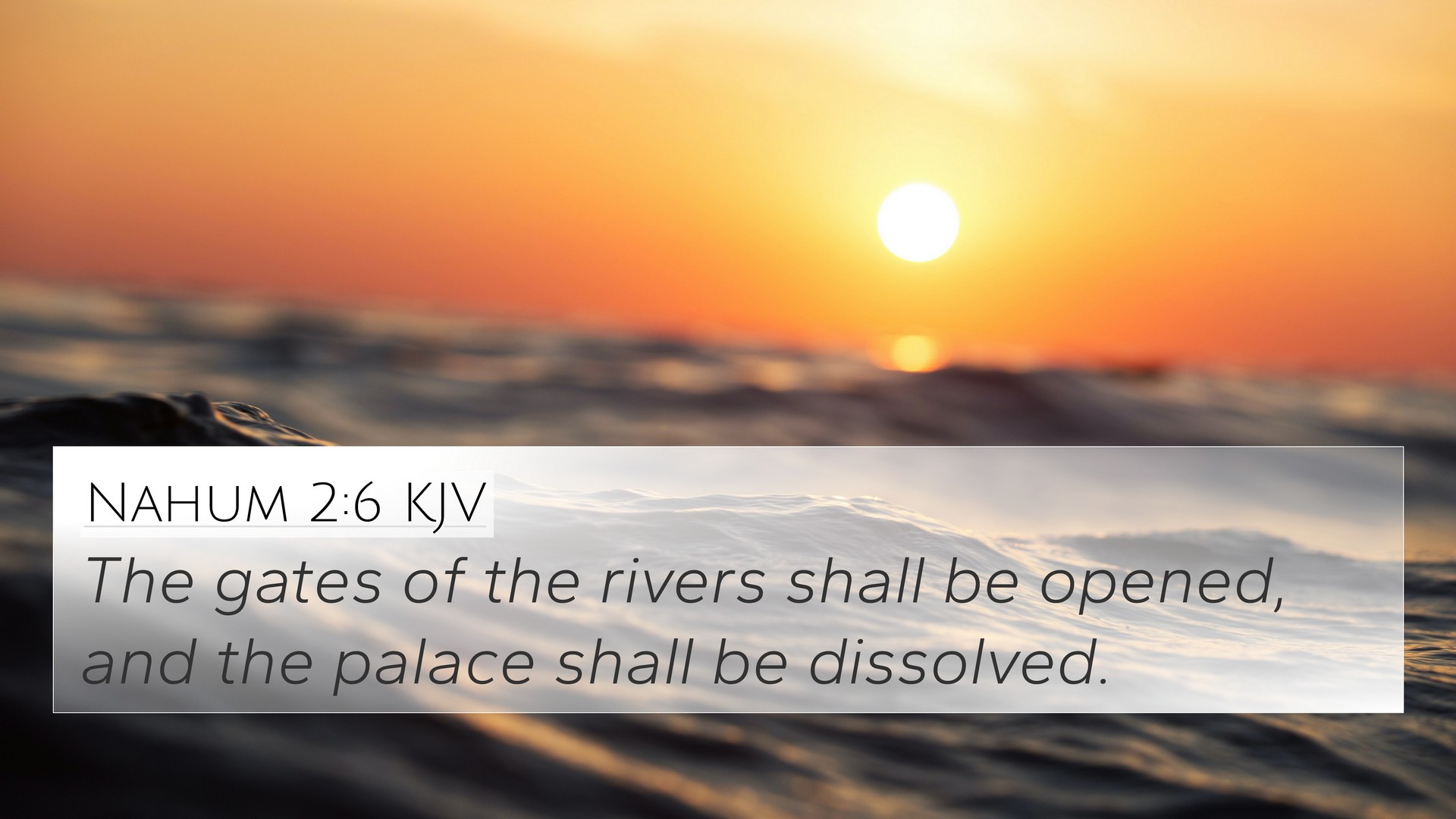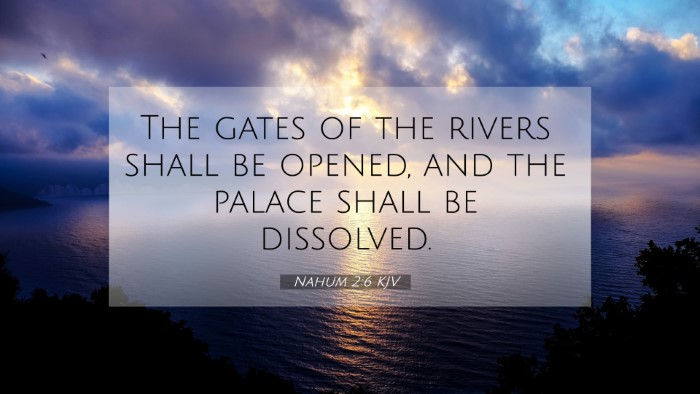Old Testament
Genesis Exodus Leviticus Numbers Deuteronomy Joshua Judges Ruth 1 Samuel 2 Samuel 1 Kings 2 Kings 1 Chronicles 2 Chronicles Ezra Nehemiah Esther Job Psalms Proverbs Ecclesiastes Song of Solomon Isaiah Jeremiah Lamentations Ezekiel Daniel Hosea Joel Amos Obadiah Jonah Micah Nahum Habakkuk Zephaniah Haggai Zechariah MalachiNahum 2:6 Similar Verses
Nahum 2:6 Cross References
The gates of the rivers shall be opened, and the palace shall be dissolved.
Uncover the Rich Themes and Topics of This Bible Verse
Listed below are the Bible themes associated with Nahum 2:6. We invite you to explore each theme to gain deeper insights into the Scriptures.
Nahum 2:6 Cross Reference Verses
This section features a detailed cross-reference designed to enrich your understanding of the Scriptures. Below, you will find carefully selected verses that echo the themes and teachings related to Nahum 2:6 KJV. Click on any image to explore detailed analyses of related Bible verses and uncover deeper theological insights.

Isaiah 45:1 (KJV) »
Thus saith the LORD to his anointed, to Cyrus, whose right hand I have holden, to subdue nations before him; and I will loose the loins of kings, to open before him the two leaved gates; and the gates shall not be shut;

2 Peter 3:10 (KJV) »
But the day of the Lord will come as a thief in the night; in the which the heavens shall pass away with a great noise, and the elements shall melt with fervent heat, the earth also and the works that are therein shall be burned up.
Nahum 2:6 Verse Analysis and Similar Verses
Understanding Nahum 2:6
Nahum 2:6 states: "The gates of the rivers shall be opened, and the palace shall be dissolved." This verse speaks of the imminent destruction of Nineveh, the capital of Assyria, and captures the profound devastation that would be unleashed upon the city.
Summary of Nahum 2:6 Meanings
This verse, according to various public domain commentaries, highlights the following key points:
- Divine Judgment: The opening of the gates and the dissolution of the palace symbolizes God's direct intervention and judgment against Nineveh for its cruelty and idolatry.
- Cultural Context: The mention of gates and rivers is significant in the context of ancient cities, where rivers were often critical for defense and transportation. The destruction of these elements suggests total destruction.
- Prophetic Fulfillment: This prophecy foreshadows the eventual historical events that led to Nineveh's downfall, where rivers flooded the city, contributing to its ruin.
Cross-References and Connections
For a deeper understanding of Nahum 2:6 and its theological implications, here are several related Bible verses that demonstrate thematic connections:
- Isaiah 10:5-7: Discusses the Assyrian as the rod of God's anger, reflecting God's sovereignty in using nations for judgment.
- Ezekiel 30:18: Details destruction with imagery similar to that of Nahum, highlighting God's judgment on nations.
- Zephaniah 2:13-15: Provides a prophetic vision of Nineveh's ruin and serves as a direct parallel to Nahum's prophecy.
- Jeremiah 50:38: Speaks of desolation over cities and nations, resonating with the thematic essence of destruction conveyed in Nahum.
- Revelation 17:16: The destruction of the great city, symbolizing the ultimate judgment upon wickedness, which relates to the fate foretold for Nineveh.
- Habakkuk 2:8: Similar themes of retribution for the blood shed by the wicked nations, connecting their fates.
- Matthew 23:37-38: A New Testament reflection that recounts the desolation of cities which echo the consequences of forsaking God's ways.
Tools for Bible Cross-Referencing
Utilizing a Bible concordance and a Bible cross-reference system can help in identifying and understanding the connections and implications of verses like Nahum 2:6. Cross-reference Bible study methods can greatly enhance understanding:
- Explore a cross-reference Bible study guide to draw out insights between different scripture references.
- Utilize comprehensive Bible cross-reference materials that can provide context and additional insights.
- Incorporate inter-Biblical dialogue to see how Old Testament prophecies are echoed in the New Testament.
Conclusion
Nahum 2:6 serves as a rich text revealing God's judgment and the inevitable fate of oppressors. Understanding the broader scriptural context and connecting it through thematic Bible verse connections not only sheds light on this verse but also enhances our comprehension of God's justice throughout the scriptures.


